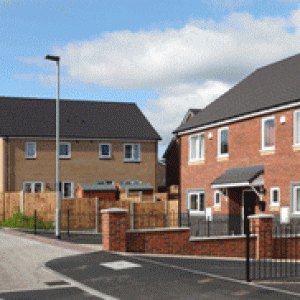Buying your first home can be daunting, especially when are constantly hearing about hidden costs and don’t know how much money you need to set aside. As such, Well Dunn Insurance has put together this handy guide of all the costs you need to account for when buying your first home.
Deposit
Raising a deposit will be the largest expenses you will need to take into consideration when buying a house. Generally, you will need to save between 5% and 20% of the property’s value in order to be accepted for a mortgage. For example, if you are buying a house worth £120,000, you would need to save £6,000 for a 5% mortgage.
However, the more money you put down, the lower your monthly repayments and you can also access better interest rates. Indeed, if you can stretch to a 25% deposit – which on a house worth £120,000 would be £30,000 – you would save money in the long term.
Mortgage
There are many types of mortgage and different deals available, so applying for your first mortgage can be confusing. The best course of action is to seek advice from a number of sources, including your bank or building society, lender, broker or mortgage advisor.
Shopping around is also a good idea. When conducting your research, look out for how interest is charged – if it is charged daily rather than weekly or monthly, it will work out cheaper. It is also worth checking out how flexible a mortgage is – some will allow you to overpay or to take a break from repayments while others won’t.
Fees are another key factor to take into consideration when applying for a mortgage. Most mortgage lenders charge fees on top of interest, the main one being the arrangement fee. Arrangement fees tend to be between £1,000 and £1,500, but some are charged as a percentage of the loan so could potentially be more. Other common fees include administration fees and product fees.
Home Insurance
Many mortgage lenders make Home Insurance a key facet of a mortgage agreement. But Home Insurance doesn’t have to cost the earth. Well Dunn specialises in this sector of the insurance industry, so can always find you the most appropriate policy for your circumstances, at a highly affordable price.
Visit our Home Insurance page for more information.
Buildings Insurance
Buildings Insurance covers the cost of permanent structures in your home, the land you own and possibly any outbuildings you possess. We’ll talk about surveys later, but things such as subsidence will only be covered in your Buildings Insurance policy if you have had a comprehensive survey carried out. Buildings Insurance will cover you for eventualities such as subsidence and protect you from financial setbacks.
Contents Insurance
Contents Insurance protects your personal possessions against loss or damage while they are in your home. Some polices will also cover goods that have temporarily been taking out of the home by the property owner. Well Dunn Insurance has access to a range of such policies, visit our Home Insurance page for more information.
Credit Ben.H Flickr http://bit.ly/1BZ5y2O
Solicitor’s Fees
You will need to hire a solicitor or a surveyor to handle the legal aspects of your property purchase. This normally costs between £500 and £750. The best course of action is to arrange a fixed fee at the outset, however, if unforeseen circumstances arise they can still charge you extra fees on top.
Surveys
Once you have bought a property, your mortgage lender will request you carry out a survey to determine whether the property is worth the money they are lending you. This usually costs between £200 and £500.
On top of this you will need to budget for a survey of your own, the most basic will cost you around £250. Your own survey will inform you about the condition of your new property, so it is well worth doing.
Finally, you will have to pay for Local Authority Searches. These cost around £300 and tell you if your property is serviced by drains, whether there is any large development planned nearby and other key information.
Stamp Duty
Properties worth £125,000 or less are exempt from stamp duty. Properties worth more than that are charged a certain percentage of stamp duty according to their value. For example:
Property Value
Stamp Duty
£125,000 or less
0%
£125,000-£250,000
1%
£250,000-£500,000
2%
£500,000-£1,000,000
4%



